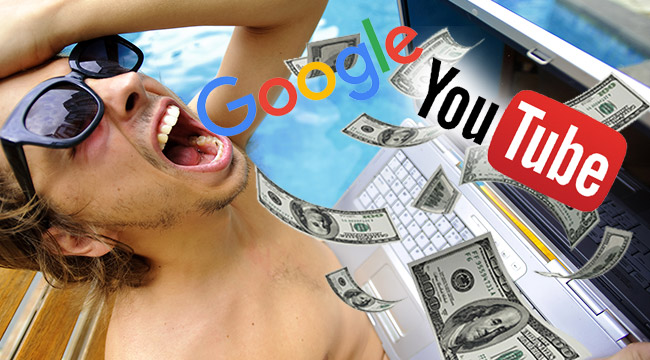YouTube is, in some ways, the wild west of video. Anybody can start a channel, and, if they gather enough followers to their cause, can even turn posting videos to YouTube into a career. Some of the followings the site gathers can be baffling from the outside, but they’re real audiences worth real money. Until, apparently, YouTube decided that they weren’t.
In the last few days, YouTubers have reported that the site is “demonetizing” posted videos which violate its terms of service. The videos are still up and can still be watched, but the channel that posted them isn’t allowed to make money off of them. That can, potentially, be utterly devastating for a YouTube channel, and, making matters worse, it’s not entirely clear who’s being singled out for demonetization, or why.
YouTube, and its owner Google, have been notorious in the past for poor communication and clumsy execution of its policy. Just recently, a YouTuber who had their clip “borrowed” by Family Guy discovered the site had yanked it as a copyright violation. The appearance of “demonetization” notices, though, has the site’s user base both confused and angry to a degree you rarely see on the site.
https://twitter.com/BeyondPhere/status/771192498144194561
Only two of our videos have been affected by YouTube demonetization act. It's still terrible hearing other channels suffer #saveyoutube
— AnimeAmerica (@AnimeAmerica) September 1, 2016
The entire demonetization case is RIDICULOUS! NO SWEARING? Youtube is FAR from a family friendly site why did YT start caring so much?
— Dee C (@invisiblepies) September 1, 2016
So what I've gleaned from this whole demonetization debacle, is the majority of people hit are those who do videos on social issues.
— Figureight – Lex (@figureight) September 1, 2016
https://twitter.com/Swagkage/status/771043492915216384
As that last tweet illustrates, a big part of the problem is how vague the new guidelines are, both in content and in goals. YouTube claims this is about keeping things “advertiser-friendly,” but whether or not something is friendly to advertisers appears to depend on the size of the account. For example, this deliberately profane BuzzFeed clip would certainly fall under the demonetization guidelines, but it still has advertising in front of it. In fact, it’s the first clip you find, after ads, when you search for the word “f**k” on YouTube.
This move has, of course, almost immediately sprawled into the realm of conspiracy. Some theorize that the demonetization is a prelude to forcing more channels to put content on YouTube’s premium service, YouTube Red, although there’s yet to be any sign of that. Others claim YouTube wants to drive their political movement of choice off the site, although, again, the evidence for this is spotty at best. Still, this new development raises the question of why, precisely, this is happening, and why it’s happening now.
Demonetization as a tool in YouTube’s arsenal was all but inevitable, as a form of damage control if nothing else. The site has been heavily criticized for profiting off of everything from hate speech to the death of “quality” in content. Realistically, the site needs a better way to handle when somebody uploads a vicious beating and or a bile-filled personal attack, and demonetization allows them to say they’re not profiting off of controversial videos, and neither is the person posting them.
That said, though, the lack of clarity over who gets demonetized, how YouTube finds videos to be checked for terms of service violations, and what part of a video, specifically, leads to a video’s demonetization (users who get the notice aren’t told how they’ve broken the rules, only that they have) has let rumors run wild. Are videos demonetized after they get reported? Does YouTube automate its violation checks? Is demonetization triggered on the part of the advertiser? Nobody knows, and YouTube has yet to offer an explanation.
One thing that’s clear is that the site will need to clarify the rules, and how to follow them, quickly. While it’s unlikely that many of the site’s channels would fall afoul of the terms of services deliberately, those users that might stumble into them need to know what they’re in for. YouTube was built, like it or not, on sometimes controversial content, and it can’t abandon that without some accountability.







